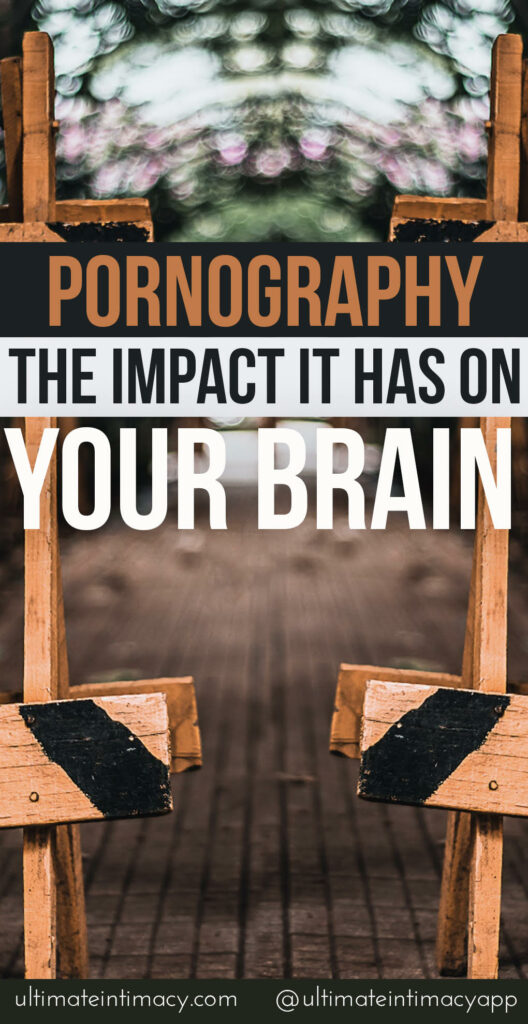In today’s digital age, access to explicit content has become easier than ever before. Pornography, in particular, has been a subject of interest and concern due to its widespread availability and potential impact on the human brain. While debates about the effects of pornography continue, research suggests that consuming explicit content can significantly influence brain function and behavior.
Understanding the science behind the screen is crucial in comprehending the potential effects of pornography on the brain.
You may also enjoy this fantastic podcast episode 210. There Is Hope In Recovering From Porn Part 1. The Amazing Story Of Jason.
In episode 203 – Why Keeping Porn Out Of Your Marriage Matters, we talked about the impact porn has on marriages, shared some important statistics and ways to keep it out of your life. We also discussed why you should keep porn out of your marriage at all costs.
In this episode, Nick has the pleasure of interviewing Jason, a good Christian husband and family man who started looking at porn at an early age, and eventually became so addicted to it, he lost his job, and even tried taking his own life. But God had different plans for him as you will hear in this incredible story he shares.
Jason opens up and shares his AMAZING journey, experience and the things he has done in his life to try to overcome this addiction. This episode will provide HOPE to those who may be struggling with porn in their life.
Now let’s get back to the article and better understand what pornography does to your brain.
Neurochemistry of Pornography Consumption
When individuals engage with pornography, the brain undergoes a complex series of neurological processes. Watching explicit content triggers the release of neurotransmitters such as dopamine, a chemical associated with pleasure and reward. The surge of dopamine creates a pleasurable experience, reinforcing the desire to seek similar stimuli.
Repeated exposure to pornography can lead to desensitization—a decreased responsiveness to the content—which may prompt individuals to seek more extreme or novel material to achieve the same level of arousal. This process mirrors the neurological mechanisms observed in substance addiction.

Impact on Brain Structure and Function
Studies using brain imaging techniques, such as MRI scans, have indicated potential alterations in brain structure and function among frequent pornography consumers. Some research suggests changes in the brain’s reward circuitry, similar to those observed in substance abuse. These alterations can affect decision-making, impulse control, and emotional regulation.
The prefrontal cortex, responsible for executive functions like decision-making and self-control, may exhibit weakened connectivity in individuals who frequently consume pornography. This diminished connectivity could influence an individual’s ability to regulate behavior and make informed choices.

Effects on Relationships and Sexual Health
The consumption of pornography can also impact interpersonal relationships and sexual health. Excessive exposure to explicit content may distort perceptions of intimacy, body image, and sexual expectations, potentially leading to relationship conflicts or unrealistic standards.
Research suggests a potential link between pornography use and sexual dysfunction, such as erectile dysfunction or decreased sexual satisfaction. Excessive consumption may contribute to difficulties in establishing and maintaining healthy sexual relationships.
Potential Mitigation Strategies
Acknowledging the potential impact of pornography on the brain, individuals can take proactive steps to mitigate its adverse effects:
- Awareness and Education: Understanding the potential consequences of excessive pornography consumption is the first step. Educating oneself about healthy sexual behaviors and seeking information from reliable sources can aid in making informed choices.
- Setting Boundaries: Establishing personal boundaries regarding pornography consumption can help regulate its influence. Open communication with spouses about individual boundaries and preferences fosters healthier relationships.
- Seeking Support: If pornography consumption becomes compulsive or interferes with daily life, seeking support from mental health professionals or support groups specializing in behavioral addictions can be beneficial.
- Developing Healthy Habits: Engaging in activities that promote overall well-being, such as exercise, hobbies, or mindfulness practices, can provide alternative sources of pleasure and help in reducing reliance on explicit content.
In conclusion, while the impact of pornography on the brain is a subject of ongoing research and debate, evidence suggests that its consumption can influence neurological processes, brain structure, and behavior.
Being mindful of consumption habits, understanding potential consequences, and seeking support when necessary can empower individuals to make informed choices and maintain healthier relationships and mental well-being. Ultimately, a balanced approach to media consumption and a focus on healthy, respectful relationships can contribute to a fulfilling and balanced life.
Ultimate Intimacy
Check out the most amazing marriage app for couples that will transform your marriage in and out of the bedroom. The Ultimate Intimacy App will transform your relationship, so download for free today!


